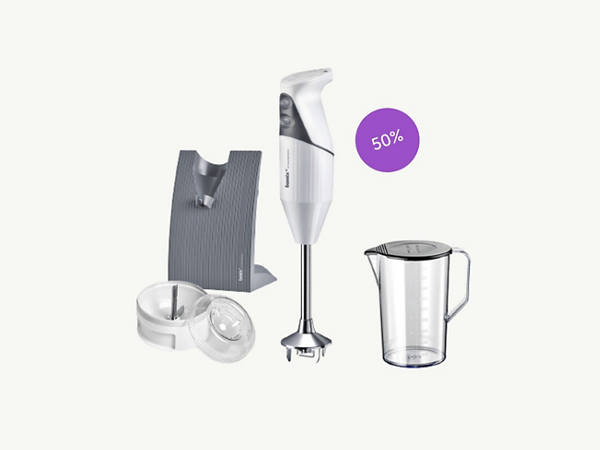What helps with flatulence? Causes and tips

Flatulence is annoying and sometimes embarrassing. Simple remedies usually provide relief. Eating in moderation is one.
Release body gases
In the old days, it was good manners to let the body make itself heard after a hearty meal. But today, releasing wind is considered indecent, which is why we are uptight about it, in the truest sense of the word. But this is wrong, because whatever can be let out can no longer cause discomfort inside.
Frequent causes of flatulence
Flatulence is often self-inflicted. While rules of etiquette represent one reason for this, certain unhealthy everyday habits also contribute: gulping down food in a hurry, eating over-sized portions, as well as eating foods that are difficult to digest. A few changes to your behaviour will make life easier for your stomach.
Where intestinal gases come from
It’s actually a normal and natural process for the body to produce intestinal gases such as carbon dioxide, methane or hydrogen sulphide. Intestinal bacteria decompose the food components that we cannot digest – fibre, for example – and the waste is converted into gases. Some of these find their way out through the «back door».
Flatulence
Only when an excessive amount of this gas is released into the atmosphere do experts speak of flatulence. Or of meteorism, a bulging bloated belly that also makes rumbling, gurgling sounds. Both can have a strong negative impact on our well-being, especially if they occur after practically every meal.
These foods can cause flatulence
-
Pulses: beans, peas, lentils and chickpeas contain raffinose, a complex carbohydrate that cannot be fully digested by humans. The undigested raffinose is fermented by bacteria in the gut, causing gas.
-
Vegetables: cabbage, broccoli, cauliflower, onions, garlic, leeks, asparagus and bell peppers also contain carbohydrates that are difficult to digest.
-
Fruit: it’s a similar case with berries, bananas, plums, apricots and dried fruit.
-
Dairy products: particularly for people with lactose intolerance, milk, yoghurt, cheese and butter can cause flatulence.
-
Wheat bran: this fibre product can also cause flatulence.
-
Sweetened drinks: lemonade, cola and juices contain sugar substitutes, which can lead to flatulence.
What can help with flatulence
-
Choose digestible foods such as white rice, peeled potatoes, bananas, cooked courgettes and cooked carrots.
-
Eat fatty foods in moderation.
-
Eat regularly, take your time, chew thoroughly.
-
Take a short walk after your meal.
-
Don’t drink highly carbonated soft drinks.
-
Mix anise, fennel or caraway seeds into your meals or use them to make teas like fennel tea or chamomile tea. Ginger, cinnamon or mint can also have a soothing effect.
Home remedies to relieve flatulence
Hausmittel gegen Blähungen sind eine sanfte und natürliche Möglichkeit, um Beschwerden wie einen aufgeblähten Bauch und Verdauungsprobleme zu lindern. Diese einfachen, aber wirksamen Methoden unterstützen die Verdauung und fördern das Wohlbefinden.
Drink tea
Tea is a proven home remedy for flatulence, as it aids digestion and has a relaxing effect on the gastrointestinal tract:
- Lemon balm tea: soothes the digestive tract and relieves cramps, making it ideal for flatulence caused by nervousness.
- Ginger tea: promotes digestion, has an anti-inflammatory effect and relieves indigestion.
- Lemon balm tea: combines the relaxing properties of the herb with a fresh citrus aroma, and has a cramp-relieving and calming effect.
- Dandelion leaf tea: aids liver and bile function, which improves digestion and helps with flatulence.
Spices and vegetables
Spices and vegetables are also effective home remedies for flatulence, as they have natural properties that promote digestion and have an anti-inflammatory effect:
- Cinnamon: known for its warming and antispasmodic properties, cinnamon can help with digestion and reduce flatulence.
- Turmeric: this spice has a strong anti-inflammatory effect and promotes bile production, which aids digestion and relieves flatulence.
- Potato juice: an old and well-known home remedy, potato juice soothes the stomach lining when taken regularly, relieving indigestion and reducing flatulence.
- Sage: sage has antispasmodic properties that also help with digestive problems and flatulence.
Alleviate discomfort in the stomach
If you want to alleviate discomfort in the stomach and reduce flatulence, we recommend these calming and soothing methods:
- Hot water bottle: applying warmth to the abdominal area helps relieve cramps and tension, reducing bloating. A hot water bottle is a simple and effective way to do this.
- Stomach massage: gentle clockwise massages around the navel stimulate bowel activity and help break down any accumulated gas. Especially in cases of indigestion, this can have a calming effect.
- Oatmeal soup: oats are rich in soluble fibre, which aids digestion and soothes the gut. Soup made with oats is a gentle and nourishing home remedy that can help with flatulence and gastro-intestinal disorders.
Intolerances can also be the cause
One reason for these conditions could be a dysfunction like irritable bowel syndrome. Others may include gluten intolerance (coeliac disease) or an intolerance to certain sugar compounds such as fructose or sorbitol (fructose intolerance). These are substances that end up undigested in the large intestine where they are fermented by bacteria. The reactions incurred include cramps and bloatedness – plus excessive intestinal gas. Sufferers may find the new FODMAP concept of help. This is used by nutrition experts to identify the triggers that are responsible and suggest more digestible foods.
Lactase enzyme necessary for digestion
Another aspect is the fact that our digestive capacity often decreases over the course of a lifetime, which can mean that too little of the enzyme that digests milk sugar (lactose) is produced. Whether someone suffers from lactose intolerance can be tested by means of a hydrogen breath test. If this is the case, sufferers are often advised to avoid milk and only eat more digestible dairy products such as yoghurt or cheese.
A bloated stomach – what to do?
Flatulence in the form of a bloated stomach can be uncomfortable, but often only needs simple measures to treat it. If you suffer from the condition, the first step is to identify the causes and act accordingly. We’re happy to provide you with helpful tips and information to alleviate flatulence and prevent its recurrence in the future.
Causes of a bloated stomach
A bloated stomach can have various causes: from eating habits, such as eating food that is difficult to digest or eating quickly, to health factors such as liver problems or weight gain. Even coffee can cause flatulence. Sometimes it's not easy to distinguish between a bloated stomach and fat accumulation. The important thing is to keep an eye on your personal eating habits and consult a doctor if symptoms persist.
Flatulence in women
In women, flatulence can be associated with different life phases. These include pregnancy, menstruation, menopause and ovulation. Hormonal changes can also lead to digestive problems, resulting in a bloated stomach. Women should observe specific symptoms during these phases and adjust their diet if necessary.
Flatulence in men
In men, lifestyle factors such as dietary habits, lack of exercise and stress can lead to a bloated stomach. To avoid digestive problems, it’s important that they monitor their personal diet, eat regularly and get enough exercise.
Flatulence in children
Flatulence in children can be caused by a variety of factors, from dietary habits to food intolerances. Parents should pay attention to what their children eat and how they react to certain foods.
Symptoms and diagnoses
Typical symptoms of flatulence are pain, nausea, abdominal fullness and sometimes diarrhoea. These symptoms can intensify at different times of the day. Sometimes flatulence occurs without any obvious symptoms, which makes diagnosis more difficult. If symptoms persist or are intense – especially after surgery – you should seek medical help to identify the exact cause and find suitable treatment options.
Treatment options
There are various approaches to treating flatulence. Home remedies, such as special teas and dietary adjustments, can often provide relief. In persistent cases, medication from a pharmacy may help. The important thing is to identify the underlying cause – food intolerances or digestive problems, for example – so that appropriate measures can be taken.
Flatulence: when to see a doctor?
The basic rules are: if flatulence occurs frequently and becomes increasingly troublesome, it’s worth consulting a doctor. Organic causes – such as chronic inflammation of the pancreas – are rare, but pain, diarrhoea, blood in the stool or lack of appetite should be treated as a warning.


